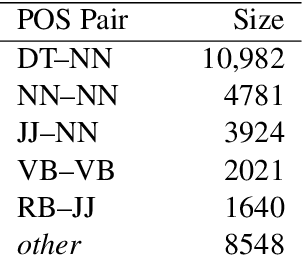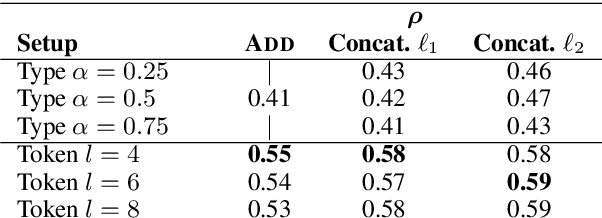Paraphrase-Supervised Models of Compositionality
Paper and Code
Jan 31, 2018



Compositional vector space models of meaning promise new solutions to stubborn language understanding problems. This paper makes two contributions toward this end: (i) it uses automatically-extracted paraphrase examples as a source of supervision for training compositional models, replacing previous work which relied on manual annotations used for the same purpose, and (ii) develops a context-aware model for scoring phrasal compositionality. Experimental results indicate that these multiple sources of information can be used to learn partial semantic supervision that matches previous techniques in intrinsic evaluation tasks. Our approaches are also evaluated for their impact on a machine translation system where we show improvements in translation quality, demonstrating that compositionality in interpretation correlates with compositionality in translation.
 Add to Chrome
Add to Chrome Add to Firefox
Add to Firefox Add to Edge
Add to Edge